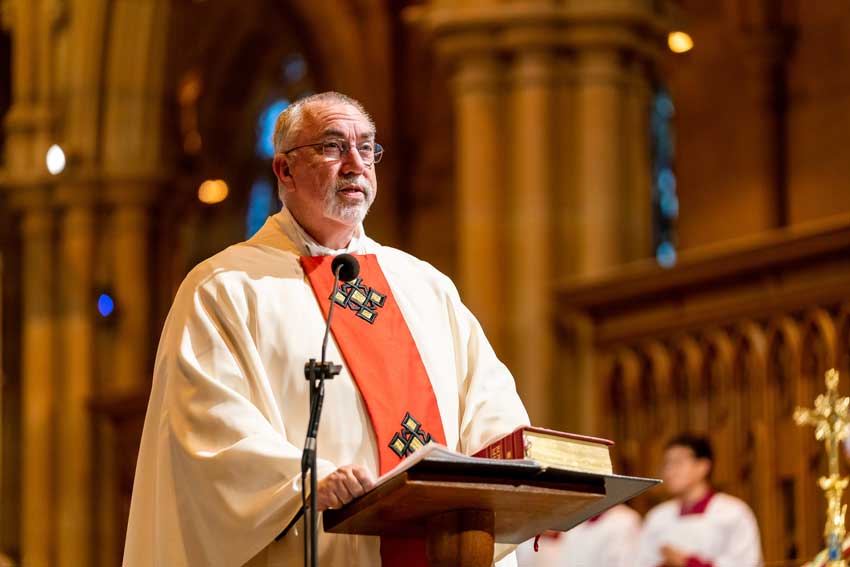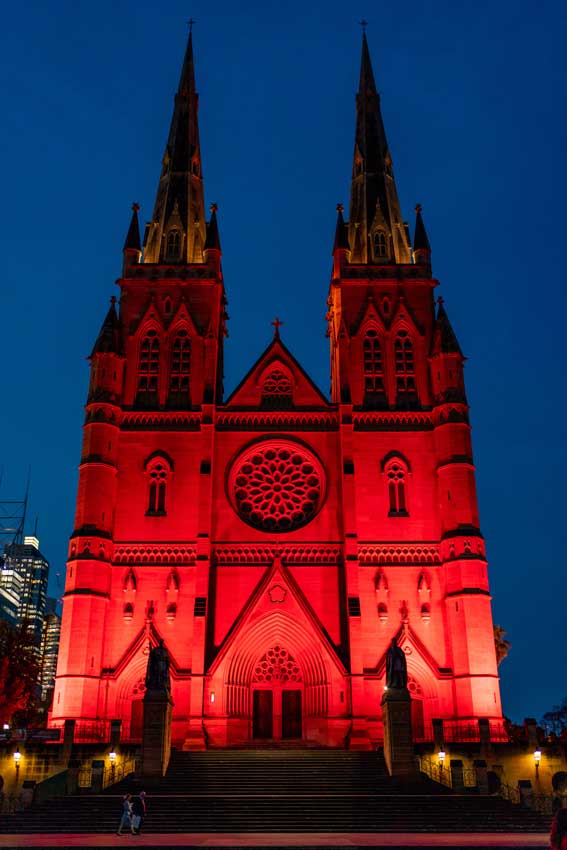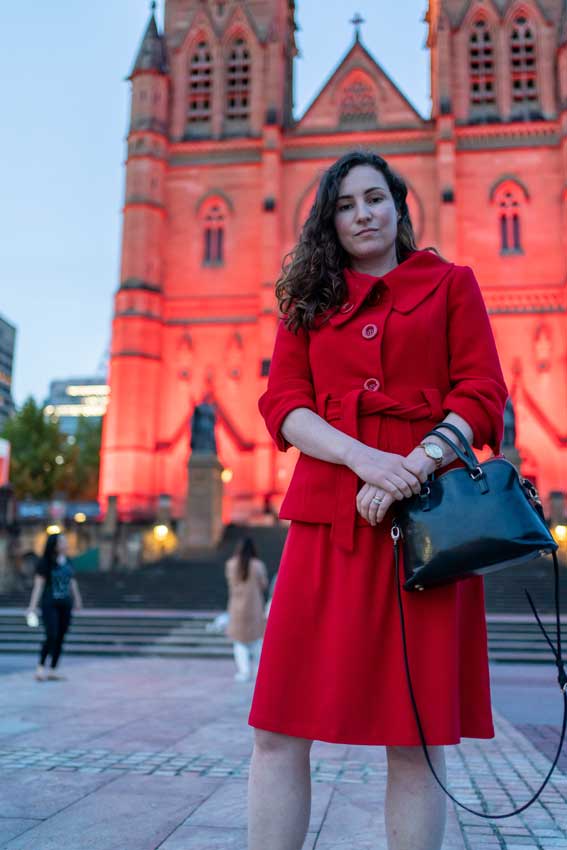
By Fr Don Richardson
Just after Easter this year, the cathedral was filled to overflowing with people at a special Mass for the victims of the church bombings in Sri Lanka. At the time, I, and I’m sure many others, had the feeling of “here we are again. How many more times must we deal with this evil?”
There is always the potential for religious belief to be connected to conflict and disagreement. How we see the world, how we are guided to act, are more that aspirations, they are often imperatives. They may spring from our religion, or from some other perspective, but of course these beliefs carry a certain charge, a certain tension.
But for disagreement, or disparity, to be twisted into shrapnel and blood spattered walls is an evil, and so gross a deformation of the humanity of the people who do it as to defy any reasoned understanding.
And then there is the cold, calculating, ideological, attempted suppression of thought, constriction of hope, misuse of intellect, which seeks to force people’s religious vitality into a dark exile, to snuff out the flame of faith lest the world catch fire with true joy and light.
This is evident in political dictatorships but also, it seems to me, in the dictatorship of the cyber-bully, the collective ignorance of the hive-mind, and the shallow populism of some politicians and demagogues.
Everyone, everyone, should be free of religious persecution. The Catechism of the Catholic Church expresses it this way:

The social duty of religion and the right to religious freedom
2104 “All people are bound to seek the truth, especially in what concerns God and his Church, and to embrace it and hold on to it as they come to know it.”26 This duty derives from “the very dignity of the human person.”27 It does not contradict a “sincere respect” for different religions which frequently “reflect a ray of that truth which enlightens all men,”28 nor the requirement of charity, which urges Christians “to treat with love, prudence and patience those who are in error or ignorance with regard to the faith.”29
2106 “Nobody may be forced to act against his convictions, nor is anyone to be restrained from acting in accordance with his conscience in religious matters in private or in public, alone or in association with others, within due limits.”34 This right is based on the very nature of the human person, whose dignity enables him freely to assent to the divine truth which transcends the temporal order. For this reason it “continues to exist even in those who do not live up to their obligation of seeking the truth and adhering to it.”35
2107 “If because of the circumstances of a particular people special civil recognition is given to one religious community in the constitutional organisation of a state, the right of all citizens and religious communities to religious freedom must be recognised and respected as well.”36
2108 The right to religious liberty is neither a moral license to adhere to error, nor a supposed right to error,37 but rather a natural right of the human person to civil liberty, i.e., immunity, within just limits, from external constraint in religious matters by political authorities. This natural right ought to be acknowledged in the juridical order of society in such a way that it constitutes a civil right.38

Our first reading today from 2 Maccabees presents a famous and clear example of persecution and violence against those who wish to do the will of God rather than of earthly authorities. The seven brothers were killed for their religion. Perhaps today in some places they might be spared execution and sent by the Authorities for re-education instead, but today they might also face devastating terrorist attacks as well as systematic oppression and as we know from Aid to the Church in Need’s study entitled Persecuted and Forgotten – A report on Christians oppressed for their faith 2017-19, it is in fact Christians who are the most oppressed religion in the world today.
The Persecuted and Forgotten report highlights both the improvements and the worsening in the global situation. The report is available on the Aid to the Church in Need website and I would really recommend you have a look at it.
In the report we find that the persecution of Christians in Syria and Iraq has declined markedly, but the continued population shifts, security issues and poverty mean that Middle Eastern Christian communities continue to be under great stress, and the future presence of Christians in the Middle East is by no means assured; we learn that in Nigeria and other parts of West Africa, the use of force or coercion by Islamists against Christians is especially vigorous, and that in parts of South and East Asia persecution against Christians has also worsened.
And as I mentioned earlier, church attacks in Sri Lanka, and also in the Philippines testify to the murderous violence against our brothers and sisters that defies our comprehension. Authoritarian governments, such as in the Peoples Republic of China, seem more emboldened than ever in their attempted suppression of Catholic and other Christians, as well as Muslim minorities.
Red Wednesday, then, brings to people’s awareness more strongly what is going on around the world. And we need to keep in mind that this is not simply a story of statistics, a list of occurrences! This is what is happening to people, to families, of flesh and blood, to the old and the weak, to the children and to the mothers and to the fathers and brothers and sisters, who simply wish to live with a clear conscience in the sight of God, taking their rightful and just place in the communities and lands in which they live as pilgrims on the way to the heavenly Jerusalem.
The Lord Jesus, as we heard in today’s Gospel, moved steadfastly towards Jerusalem, the earthly Jerusalem, where he would suffer and die for our sake. But in doing so, he taught us that our true home is to be found of course in the heavenly Jerusalem. But that does not mean that we don’t seek to live, and to live freely, and proclaim the Gospel, and share it, generously and with humility in this world, while we’re still on this pilgrimage. We should be able to live in freedom.
So tonight at this Mass let us pray especially for those Christians who are being persecuted – persecution which can take many forms – persecution which we ourselves may experience in a more diluted way in this blessed land.
But, I think, in this regard we can take nothing for granted.
Fr Don Richardson is Dean of St Mary’s Cathedral, Sydney. This homily was delivered on Red Wednesday 20 November in St Mary’s Cathedral, Sydney.
Related article:
